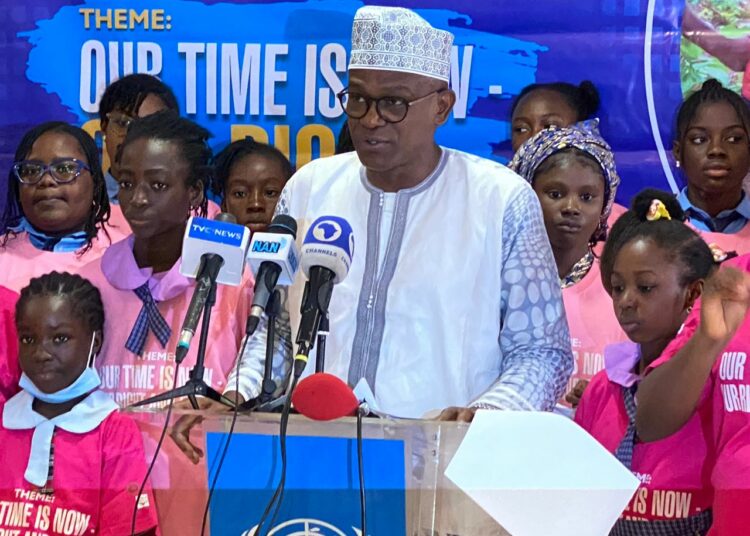Head of Education Sector, UNESCO Abuja Regional Office, Mr. Mamadou Lamine Sow, has said that over five million adolescent girls and young women in nine states and the Federal Capital Territory (FCT) have benefited from the UNESCO’ 03 programme, aimed at helping young people realise their positive health, education, and gender equality outcomes.
The states are Nasarawa, Taraba, Ebonyi, Kaduna, Imo, Abia, Benue, Cross River, Lagos and the Federal Capital Territory (FTC).
Mamadou stated this on Friday at a press briefing in commemoration of the International Day of the Girl Child 2022, themed: “Our Time Is Now — Our Rights, Our Future,” in Abuja.
He said the “UNESCO’s “Our Rights, Our Lives, Our Future” (03) Program has a vision for adolescents and Young people in Sub Saharan Africa (SSA) including Nigeria to realise their positive health, education, and gender equality outcomes through a sustained reduction in HIV new infections, early and unintended pregnancy, gender-based violence and child marriage.
“The Program has raised awareness through advocacy and sensitisation to duty bearers, built the capacity of teachers, developed resources to address school-related gender-based violence and integrated indicators to monitor progress in the Educational Management information System (EMIS).
“As a result of these interventions, over 5 million adolescent girls and young women have received life-saving education, information, and skills to make informed decisions about their sexual reproductive health, well-being and achieve their potential.”
Speaking further, Mamadou said in addition to the 03 Program, the Promoting School Health and Education for Girls in Africa in the COVID-19 Era Project is a UNESCO’s gender-specific project that prioritizes girls’ sexual reproductive health and wellbeing, elimination of genderbased violence in and through education and to improve knowledge on menstrual hygiene and health management.
He said though the project being piloted only in Ebonyi State now, a rapid assessment conducted revealed that many girls are out of school due to poverty, early and unintended pregnancy, and sexual and gender-based violence in the states.
On her part, the director, Basic Education, Federal Ministry of Education, Dr Folake David, urged state governments to domesticate and implement gender policy on education.
“So we beckon on state governments to domesticate and implement this policy and a lot of states have also shown interest in ensuring that the right of girls are protected,” she said.
10-year-old basic five pupil, Jemimah Dauda, appealed to the government to improve access to education for the girl-child, especially out of school children and address the issue of insecurity in the country.











